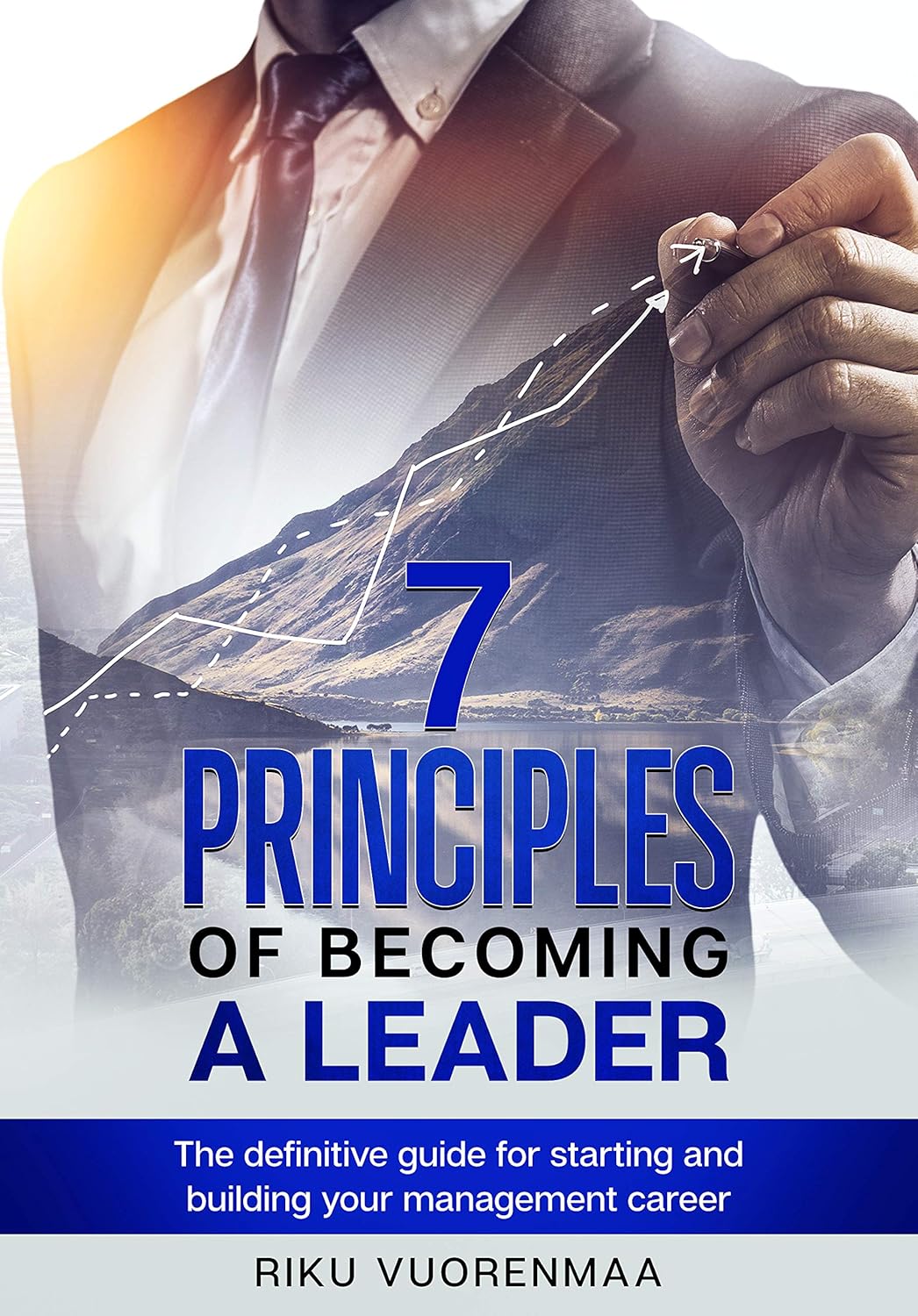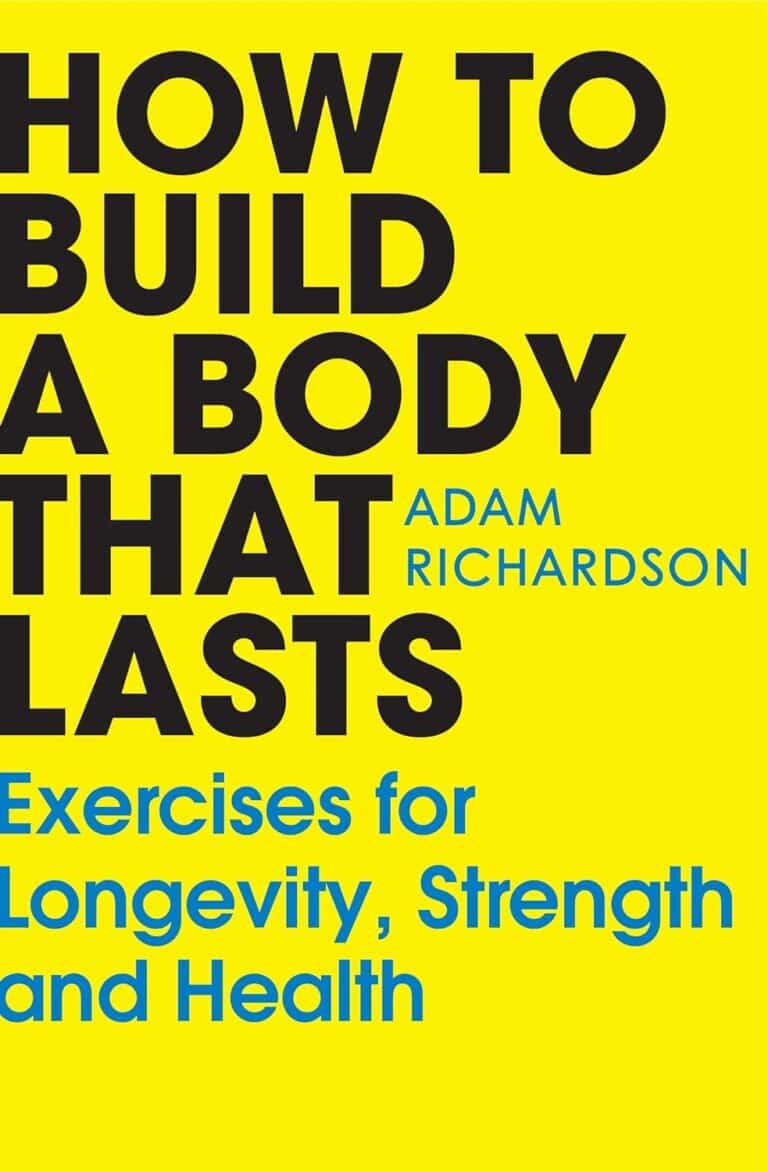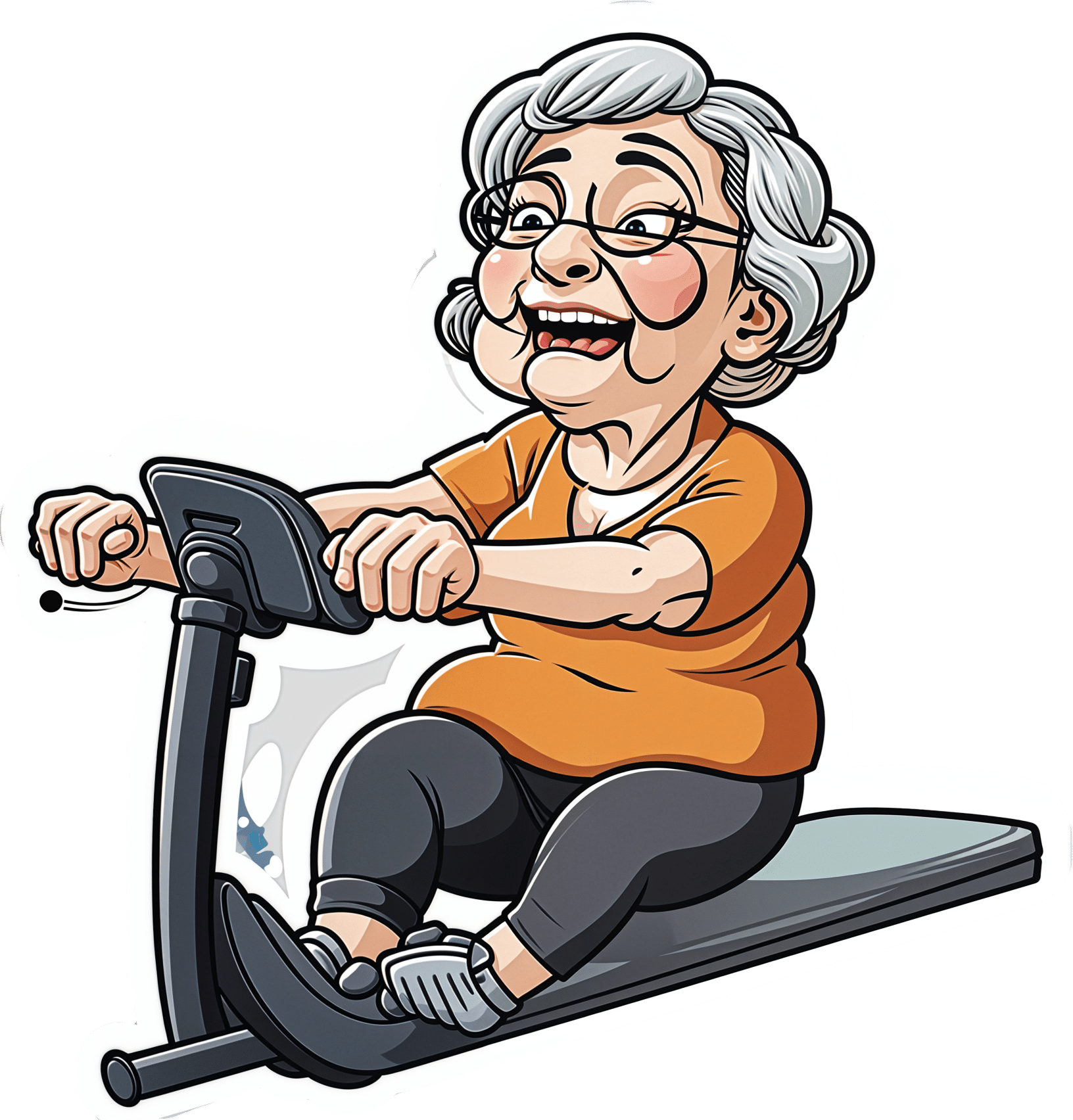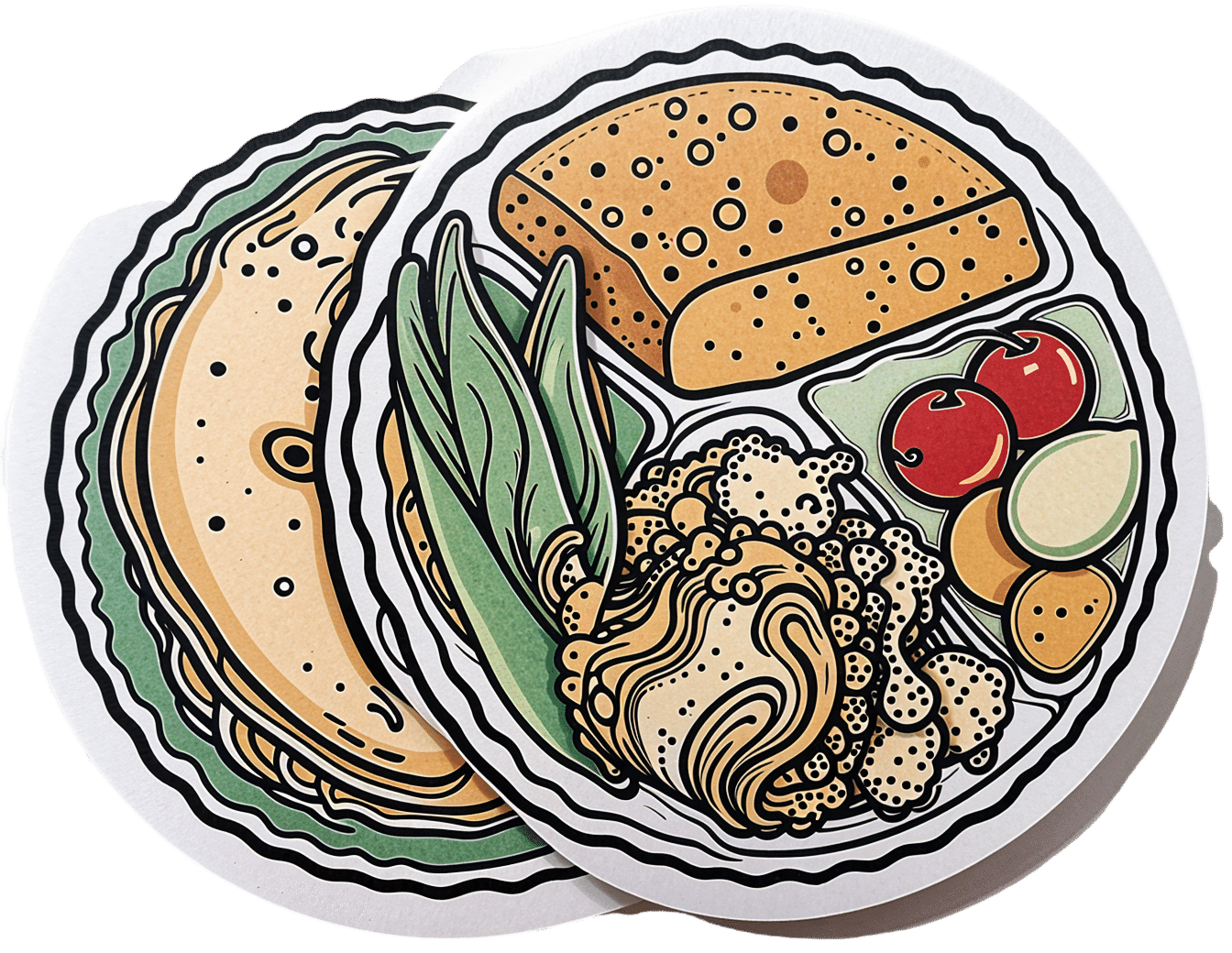
7 Principles of Becoming a Leader – by Riku Vuorenmaa
10almonds is reader-supported. We may, at no cost to you, receive a portion of sales if you purchase a product through a link in this article.
We urge you to overlook the cliché cover art (we don’t know what they were thinking, going for the headless suited torso) because…
This one could be the best investment you make in your career this year! You may be wondering what the titular 7 principles are. We won’t keep you guessing; they are:
- Professional development: personal excellence, productivity, and time management
- Leadership development: mindset and essential leadership skills
- Personal development: your motivation, character, and confidence as a leader
- Career management: plan your career, get promoted and paid well
- Social skills & networking: work and connect with the right people
- Business- & company-understanding: the big picture
- Commitment: make the decision and commit to becoming a great leader
A lot of leadership books repeat the same old fluff that we’ve all read many times before… padded with a lot of lengthy personal anecdotes and generally editorializing fluff. Not so here!
While yes, this book does also cover some foundational things first, it’d be remiss not to. It also covers a whole (much deeper) range of related skills, with down-to-earth, brass tacks advice on putting them into practice.
This is the kind of book you will want to set as a recurring reminder in your phone, to re-read once a year, or whatever schedule seems sensible to you.
There aren’t many books we’d put in that category!
Pick Up Your Copy of the “7 Principles of Becoming a Leader” on Amazon Today!
Don’t Forget…
Did you arrive here from our newsletter? Don’t forget to return to the email to continue learning!
Recommended
Learn to Age Gracefully
Join the 98k+ American women taking control of their health & aging with our 100% free (and fun!) daily emails:
-
Staying Healthy and Active After 60
10almonds is reader-supported. We may, at no cost to you, receive a portion of sales if you purchase a product through a link in this article.
Questions and Answers at 10almonds
Have a question or a request? You can always hit “reply” to any of our emails, or use the feedback widget at the bottom!
This newsletter has been growing a lot lately, and so have the questions/requests, and we love that! In cases where we’ve already covered something, we might link to what we wrote before, but will always be happy to revisit any of our topics again in the future too—there’s always more to say!
As ever: if the question/request can be answered briefly, we’ll do it here in our Q&A Thursday edition. If not, we’ll make a main feature of it shortly afterwards!
So, no question/request too big or small
Q: How to be your best self after 60: Self motivation / Avoiding or limiting salt, sugar & alcohol: Alternatives / Ways to sneak in more movements/exercise
…and, from a different subscriber…
Q: Inflammation & over 60 weight loss. Thanks!
Here are some of our greatest hits on those topics:
- Where Nutrition Meets Habits ← focusing on food that’s all three of: healthy + easy + cheap
- How To Keep On Keeping On ← exercise tips for when the motivation wanes
- Keep Inflammation At Bay ← science-based tips and advice
Also, while we’ve recommended a couple of books on stopping (or reducing) drinking, we’ve not done a main feature on that, so we definitely will one of these days!
Share This Post
-
What’s the difference between medical abortion and surgical abortion?
10almonds is reader-supported. We may, at no cost to you, receive a portion of sales if you purchase a product through a link in this article.
In Australia, around one in four people who are able to get pregnant will have a medical or surgical abortion in their lifetime.
Both options are safe, legal and effective. The choice between them usually comes down to personal preference and availability.
So, what’s the difference?
PeopleImages.com – Yuri A/Shutterstock What is a medical abortion?
A medical abortion involves taking two types of tablets, sold together in Australia as MS2Step.
The first tablet, mifepristone, stops the hormone progesterone, which is needed for pregnancy. This causes the lining of the uterus to break down and stops the embryo from growing.
After taking mifepristone, you wait 36–48 hours before taking the second tablet, misoprostol. Misoprostol makes the cervix (the opening of the uterus) softer and starts contractions to expel the pregnancy.
It’s normal to have strong pain and heavy bleeding with clots after taking misoprostol. Pain relief including ibuprofen and paracetamol can help.
After two to six hours, the bleeding and pain usually become like a normal period, although this may last between two to six weeks.
Haemorrhage after a medical abortion is rare (occurring in fewer than 1% of abortions). But you should seek help if bleeding remains heavy (if you soak two pads per hour for two consecutive hours) or if you have have signs of infection (such as a fever, increasing abdominal pain or smelly vaginal discharge).
Do I have to go to hospital?
It is legal to have a medical abortion outside of a hospital up to nine weeks of pregnancy.
Depending on state or territory law, the medication can be prescribed by a qualified health-care provider such as a GP, nurse practitioner or endorsed midwife. These clinicians often work in GP surgeries or sexual and reproductive health clinics and they may use telehealth.
Medical abortions also occur after nine weeks of pregnancy, but these are done in hospitals and overseen by doctors alongside nurses or midwives.
Medical abortions after 20 weeks are done by taking medications to start early labour in a maternity unit. Often, medications are first given to stop the foetal heartbeat so it is not born alive. Then, other medications are given to manage pain.
These types of abortions are very rare. They may be used when an obstacle has prevented someone accessing an abortion earlier, continuing with the pregnancy is dangerous for the pregnant person’s health or if there is a serious problem with the foetus.
Medical abortions in Australia involve taking two tablets, usually around two days apart. PeopleImages.com – Yuri A/Shutterstock What is a surgical abortion?
Surgical abortions are performed in an operating unit, usually with sedation, so you will not remember the procedure. Surgical abortions are sometimes preferred over medical abortions because they are quicker. But the decision should be between you and your health-care provider.
In the first 12–14 weeks of pregnancy, a surgical abortion takes less than 15 minutes and patients are usually discharged a few hours after the procedure.
Medications may be given before surgery to soften and open the cervix and to ease pain. During the procedure, the cervix is gently stretched open and the contents of the uterus are removed with a small tube. This procedure is carried out by trained doctors with the assistance of nurses.
Surgical abortions after 12–14 weeks are more complex and are performed by specially trained doctors. Similar to medical abortions, medications may be given first to stop the foetal heartbeat.
It is normal to experience some cramping and bleeding after a surgical abortion, which can last about two weeks. However, like medical abortion, you should seek help for heavy bleeding or signs of infection.
Do I need an ultrasound?
It used to be common before an abortion to have an ultrasound scan to check how far along the pregnancy was and to make sure it was not ectopic (outside the uterus).
However, this is no longer recommended in the early stages of pregnancy (up to 14 weeks) if it delays access to abortion. If the date of the last menstrual period is known and there are no other concerning symptoms, an ultrasound scan may not be necessary.
This means people can access medical abortion much sooner, even from the first day of a missed period, without waiting for the embryo to be big enough to be seen on an ultrasound scan. This is called “very early medical abortion”.
Before and after care
Before having an abortion, a health-care provider will explain common side effects and when to seek urgent medical attention. For people who want it, many types of contraception can be started the day of abortion.
Your health-care provider will help you understand your options, including whether you want to start contraception. PowerUp/Shutterstock Even though the success rate of medical abortion is very high (over 95%) it is routine to make sure the person is no longer pregnant.
This is usually done two to three weeks after taking the first tablet mifepristone, either by a low-sensitivity urine pregnancy test (which you can do at home) or a blood test.
In the rare case a medical abortion has not worked, a surgical abortion can be done.
Sometimes after a medical or surgical abortion, tissue is left behind in the uterus. If this happens you may need another dose of misoprostol (the second tablet) or a surgical procedure to remove the tissue.
Some people may also seek support-based counselling or peer support to help them work through the emotions that might accompany having an abortion.
Understanding the differences and similarities between medical and surgical abortions can help individuals make informed decisions about their reproductive health.
It’s important to speak with an unbiased health-care provider to discuss the best option for your circumstances and to ensure you receive the necessary follow-up care and support.
Lydia Mainey, Senior Nursing Lecturer, CQUniversity Australia
This article is republished from The Conversation under a Creative Commons license. Read the original article.
Share This Post
-
What Is “75 Hard”?
10almonds is reader-supported. We may, at no cost to you, receive a portion of sales if you purchase a product through a link in this article.
This is Andy Frisella. He’s not a doctor, scientist, nutritionist, personal trainer, or professional athlete, but he has kicked off a viral fitness challenge, so let’s take a look at it:
What it is
Firstly, Frisella asserts that it’s not a fitness challenge, but rather, he describes it as a “transformative mental toughness program”.
Here’s what it consists of:
- Follow a healthy diet plan with no deviations from it (i.e. no “cheat days”)
- Abstain from alcohol
- Exercise 2x per day, 45 minutes each
- One of the exercise sessions each day must be outside
- No rest days
- Drink 3.5 liters of water per day
And the duration? 75 days, hence the name of the
fitness challengetransformative mental toughness program.Why it is
Frisella’s rationale is:
- we must cultivate mental toughness by doing hard things
- allowing ourselves any deviation would be a sign of mental weakness
- if we allow ourselves to deviate, it becomes a habit
For this reason, he does not “allow” any substitutions, for example if somebody wants to do such-and-such a thing slightly differently instead. We put “allow” in quotation marks because of course, he’s not the boss of you, but per the rules of his challenge, at least.
These reasonings are in and of themselves somewhat sound, however, we at 10almonds would argue:
- before doing hard things, it is good to first consider “is it a good idea?” (amputating your leg using only a spork is a “hard thing”, and demonstrates incredible mental toughness, but that doesn’t make it a good idea)
- while being able to decide to do a thing and then do it is great characteristic to have, it’s good to first consider science; for example, restrictive diets with no flexibility simply do not work, and our bodies do require adequate rest, especially if being pushed through hard things, or problems will happen (injuries, illnesses, etc).
- while it’s true that allowing ourselves to deviate can become a habit, it’s good to first consider what habits we want to make, and make those habits, instead of potentially unsustainable or even simply unpleasant ones.
See also: What Flexible Dieting Really Means: When Flexibility Is The Dish Of The Day
And for that matter: How To Really Pick Up (And Keep!) Those Habits
Want a “75 Gentle” instead?
If you like the idea of making new habits, but are not sure if extreme (and perhaps arbitrary) standards are the ones you want to hold, check out:
Cori Lefkowith’s 25 Healthy Habits That Will Change Your Life
Take care!
Share This Post
Related Posts
-
Eat To Beat Cancer
10almonds is reader-supported. We may, at no cost to you, receive a portion of sales if you purchase a product through a link in this article.
Controlling What We Can, To Avoid Cancer
Every time a cell in our body is replaced, there’s a chance it will be cancerous. Exactly what that chance is depends on very many factors. Some of them we can’t control; others, we can.
Diet is a critical, modifiable factor
We can’t choose, for example, our genes. We can, for the most part, choose our diet. Why “for the most part”?
- Some people live in a food desert (the Arctic Circle is a good example where food choices are limited by supply)
- Some people have dietary restrictions (whether by health condition e.g. allergy, intolerance, etc or by personal-but-unwavering choice, e.g. vegetarian, vegan, kosher, halal, etc)
But for most of us, most of the time, we have a good control over our diet, and so that’s an area we can and should focus on.
Choose your animal protein wisely
If you are vegan, you can skip this section. If you are not, then the short version is:
- Fish: almost certainly fine
- Poultry: the jury is out; data is leaning towards fine, though
- Red meat: significantly increased cancer risk
- Processed meat: significantly increased cancer risk
For more details (and a run-down on the science behind the above super-summarized version):
- Do We Need Animal Products To Be Healthy? ← A mythbuster article that outlines many health properties (good and bad) of animal products
- The Whys and Hows of Cutting Meats Out Of Your Diet ← A life-hack article about acting on that information
Skip The Ultra-Processed Foods
Ok, so this one’s probably not a shocker in its simplest form:
❝Studies are showing us is that not only do the ultraprocessed foods increase the risk of cancer, but that after a cancer diagnosis such foods increase the risk of dying❞
Source: Is there a connection between ultraprocessed food and cancer?
There’s an unfortunate implication here! If you took the previous advice to heart and cut out [at least some] meat, and/but then replaced that with ultra-processed synthetic meat, then this was not a great improvement in cancer risk terms.
Ultra-processed meat is worse than unprocessed, regardless of whether it was from an animal or was synthetic.
In other words: if you buy textured soy pieces (a common synthetic meat), it pays to look at the ingredients, because there’s a difference between:
- INGREDIENTS: SOY
- INGREDIENTS: Rehydrated Textured SOY Protein (52%), Water, Rapeseed Oil, SOY Protein Concentrate, Seasoning (SULPHITES) (Dextrose, Flavourings, Salt, Onion Powder, Food Starch Modified, Yeast Extract, Colour: Red Iron Oxide), SOY Leghemoglobin, Fortified WHEAT Flour (WHEAT Flour, Calcium Carbonate, Iron, Niacin, Thiamin), Bamboo Fibre, Methylcellulose, Tomato Purée, Salt, Raising Agent: Ammonium Carbonates
Now, most of those original base ingredients are/were harmless per se (as are/were the grapes in wine—before processing into alcohol), but it has clearly been processed to Hell and back to do all that.
Choose the one that just says “soy”. Or eat soybeans. Or other beans. Or lentils. Really there are a lot of options.
About soy, by the way…
There is (mostly in the US, mostly funded by the animal agriculture industry) a lot of fearmongering about soy. Which is ironic, given the amount of soy that is fed to livestock to be fed to humans, but it does bear addressing:
❝Soy foods are safe for all cancer patients and are an excellent source of plant protein. Studies show soy may improve survival after breast cancer❞
Source: Food risks and cancer: What to avoid
(obviously, if you have a soy allergy then you should not consume soy—for most people, the above advice stands, though)
Advanced Glycation End-Products
These (which are Very Bad™ for very many things, including cancer) occur specifically as a result of processing animal proteins and fats.
Note: not even necessarily ultra-processing, just processing can do it. But ultra-processing is worse. What’s the difference, you wonder?
The difference between “ultra-processed” and just “processed”:
- Your average hotdog has been ultra-processed. It’s not only usually been changed with many artificial additives, it’s also been through a series of processes (physical and chemical) and ends up bearing little relation to the creature it came from.
- Your bacon (that you bought fresh from your local butcher, not a supermarket brand of unknown provenance, and definitely not the kind that might come on the top of frozen supermarket pizza) has been processed. It’s undergone a couple of simple processes on its journey “from farm to table”. Remember also that when you cook it, that too is one more process (and one that results in a lot of AGEs).
Read more: What’s so bad about AGEs?
Note if you really don’t want to cut out certain foods, changing the way you cook them (i.e., the last process your food undergoes before you eat it) can also reduce AGES:
Advanced Glycation End Products in Foods and a Practical Guide to Their Reduction in the Diet
Get More Fiber
❝The American Institute for Cancer Research shows that for every 10-gram increase in fiber in the diet, you improve survival after cancer diagnosis by 13%❞
Source: Plant-based diet is encouraged for patients with cancer
Yes, that’s post-diagnosis, but as a general rule of thumb, what is good/bad for cancer when you have it is good/bad for cancer beforehand, too.
If you’re thinking that increasing your fiber intake means having to add bran to everything, happily there are better ways:
Level-Up Your Fiber Intake! (Without Difficulty Or Discomfort)
Enjoy!
Don’t Forget…
Did you arrive here from our newsletter? Don’t forget to return to the email to continue learning!
Learn to Age Gracefully
Join the 98k+ American women taking control of their health & aging with our 100% free (and fun!) daily emails:
-
3 Things Everyone Over 50 Must Do Daily for Healthy Feet
10almonds is reader-supported. We may, at no cost to you, receive a portion of sales if you purchase a product through a link in this article.
Will Harlow, the over-50s specialist physio, wants you to be on a good footing:
Daily steps in the right direction
The three daily exercises recommended in the video are:
Exercise 1: Towel Scrunch
The towel scrunch exercise strengthens the flexor muscles in the feet, improving balance and improving contact with the ground. To do this exercise, sit on a chair with a towel placed on the floor beneath your toes while keeping your heels on the ground. Use only your toes to pull the towel toward your heel, scrunching it up as much as possible. This movement strengthens the arch of the foot and can help alleviate symptoms of flat feet. For best results, practice this exercise for 2–3 minutes once or twice daily. Once you’ve got the hand of doing it sitting, do it while standing.
Exercise 2: Big Toe Extension
Big toe extension is an essential exercise for maintaining foot mobility and improving walking kinesthetics by preventing stiffness in the big toe. To do this exercise, keep your foot flat on the floor and try to lift only your big toe while keeping the four other toes firmly pressed down. To be clear, we mean under its own power; not using your hands to help. Many people find this difficult initially, but it’s due to a loss of neural connection rather than muscle strength, so with practice, the ability to isolate the movement improves quite quickly. Perform 10 repetitions in a row, three times per day, for optimal benefits. Once you’ve got the hand of doing it sitting, do it while standing.
Exercise 3: Calf Stretch
The calf stretch is an important exercise for maintaining foot health by preventing tight calves, which can contribute to issues like plantar fasciitis and Morton’s neuroma. To do this stretch, place your hands against a wall for support and extend one leg straight behind you while keeping your other heel firmly on the floor. The front knee should be bent while the back leg remains straight, creating a stretch in the calf. Hold this position for 30 seconds (building up to that, if necessary). Since the effectiveness of stretching comes from frequency rather than duration, this stretch should be performed three to four times per day for the best results.
For more on each of these, plus visual demonstrations, enjoy:
Click Here If The Embedded Video Doesn’t Load Automatically!
Want to learn more?
You might also like to read:
Steps For Keeping Your Feet A Healthy Foundation ← this one’s about general habits, not exercises
Take care!
Don’t Forget…
Did you arrive here from our newsletter? Don’t forget to return to the email to continue learning!
Learn to Age Gracefully
Join the 98k+ American women taking control of their health & aging with our 100% free (and fun!) daily emails:
-
What Loneliness Does To Your Brain And Body
10almonds is reader-supported. We may, at no cost to you, receive a portion of sales if you purchase a product through a link in this article.
Spoiler: it’s nothing good (but it can be addressed!)
Not something to be ignored
Loneliness raises the risk of heart disease by 29% and the risk of stroke by 32%. It also brings about higher susceptibility to illness (flu, COVID, chronic pain, etc), as well as poor sleep quality and cognitive decline, possibly leading to dementia. Not only that, but it also promotes inflammation, and premature death (comparable to smoking).
This is because the lack of meaningful social connections activates the body’s stress response, which in turn increases paranoia, suspicion, and social withdrawal—which makes it harder to seek the social interaction needed to alleviate it.
On a neurological level, cortisol levels become imbalanced, and a faltering dopamine response leads to impulsive behaviors (e.g., drinking, gambling) to try to make up for it. Decreased serotonin, oxytocin, and natural opioids reduce feelings of happiness and negate pain relief.
As for combatting it, the first-line remedy is the obvious one: connecting with others improves emotional and physical wellbeing. However, it is recommended to aim for deep, meaningful connections that make you happy rather than just socializing for its own sake. It’s perfectly possible to be lonely in a crowd, after all.
A second-line remedy is to simply mitigate the harm by means of such things as art therapy and time in nature—they can’t completely replace human connection, but they can at least improve the neurophysiological situation (which in turn, might be enough of a stop-gap solution to enable a return to human connection).
For more on all of this, enjoy:
Click Here If The Embedded Video Doesn’t Load Automatically!
Want to learn more?
You might also like to read:
How To Beat Loneliness & Isolation
Take care!
Don’t Forget…
Did you arrive here from our newsletter? Don’t forget to return to the email to continue learning!
Learn to Age Gracefully
Join the 98k+ American women taking control of their health & aging with our 100% free (and fun!) daily emails:











